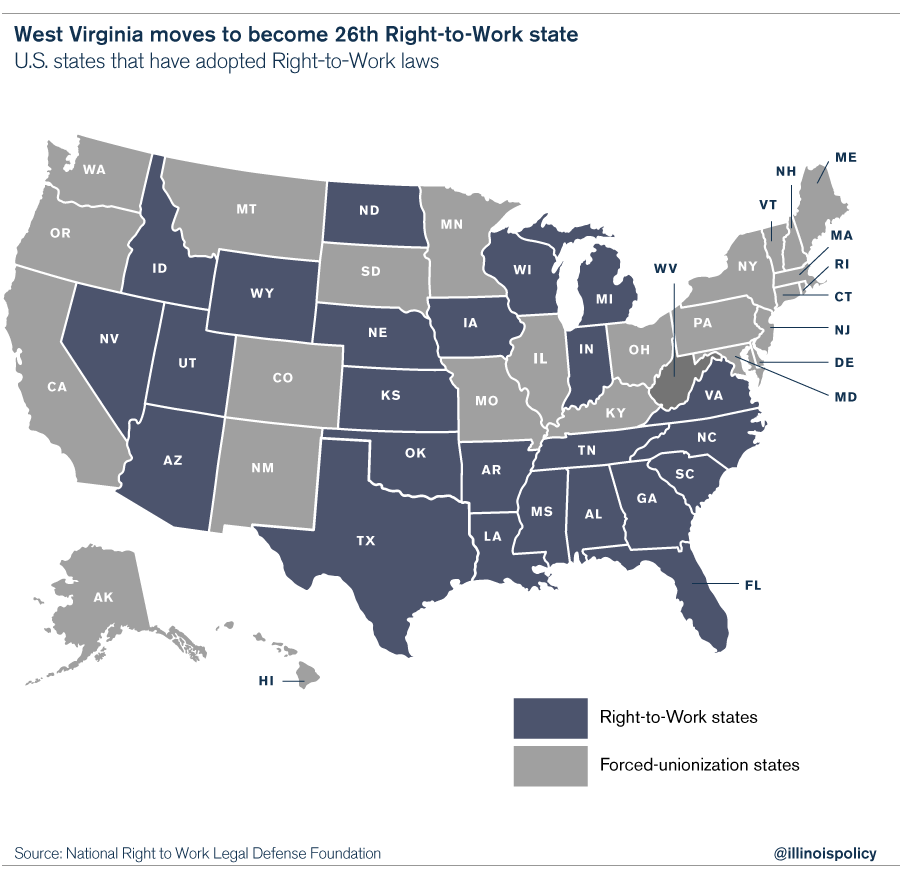West Virginia takes first step toward becoming 26th Right-to-Work state
West Virginia’s Senate has passed legislation to protect a worker’s right to choose to join a union, or to opt out entirely.
The West Virginia Senate passed a statewide Right-to-Work law on Jan. 21; the bill now lies with the Republican-controlled West Virginia House of Delegates, which is expected to pass the legislation. The proposed law would protect a worker’s choice to join or completely opt out of a union, and its passage would mean that unions in the Mountaineer State could no longer get workers fired for not paying union dues or fees.
Although Democratic Gov. Earl Ray Tomblin has said he doesn’t think West Virginia needs a Right-to-Work law, the West Virginia Legislature could override a veto of the bill with a simple majority vote in each chamber. West Virginia thus could very well become the 26th Right-to-Work state in the U.S. early in 2016.
West Virginia’s beleaguered economy has been beset by weak growth in industrial sectors, as well as the effects of regulation on the coal industry. If the Right-to-Work bill becomes law, however, it will help West Virginia compete for new jobs and investment.
Since 1990, annual jobs growth in Right-to-Work states has been double the rate of jobs growth in forced-unionization states. Personal income has grown faster in Right-to-Work states, too.
A Right-to-Work law in West Virginia would undoubtedly put pressure on Kentucky to chart the same course. Kentucky Gov. Matt Bevin, elected in November 2015, has made it a top priority to bring worker freedom to the Bluegrass State, where a dozen counties have already enacted local Right to Work. If Bevin succeeds, that would mean one more neighboring state competing with Illinois on worker choice.
Worker freedom is spreading across the industrial heartland, and it has even gained a foothold in Illinois. The village of Lincolnshire was the first to enact municipal Right to Work in the Land of Lincoln. For the sake of Illinois’ struggling residents who need better job opportunities and the businesses striving to provide them, it shouldn’t be the last.

